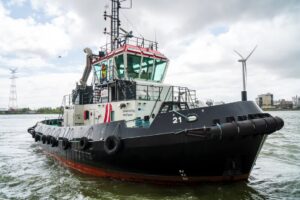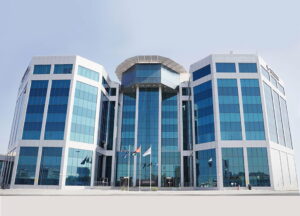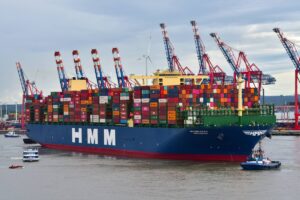According to data released by Xeneta, the Red Sea conflict has resulted in enormous increases in carbon emissions from ocean freight container shipping.
The Xeneta & Marine Benchmark Carbon Emissions Index (CEI), which evaluates carbon emissions per tonne of cargo moved across the world’s top 13 trades, reached 107.4 points in Q1 2024, its highest level since the index’s inception in Q1 2018.
Carbon emissions from containers moved by ocean from the Far East to the Mediterranean climbed by 63 per cent in Q1 2024 compared to Q4 2023, according to the CEI. Carbon emissions grew by 23 per cent between the Far East and Northern Europe.
This is a direct result of the conflict in the Red Sea region, which escalated in December 2023 and has seen most ocean freight container services avoid the Suez Canal.
Xeneta data also shows that interruption in the Red Sea has forced some shippers to use air freight to secure their supply networks.
READ: Xeneta data shows ocean freight rates hit two-year low
With the main ocean freight ships continuing to avoid the Red Sea, cargo from the Far East is increasingly arriving by sea at ports such as Jebel Ali in the Arabian Gulf before being flown out of Dubai Airport for further shipment to Europe and North America.
As a result, air cargo demand from Dubai Airport to European destinations grew by 190 per cent in March compared to the same month in 2023.
Emily Stausbøll, Xeneta Market Analyst, said: “Not only is air freight more expensive than ocean freight it is also far less sustainable, so this shift to hybrid sea-air services via the Middle East will result in increased carbon emissions per tonne of cargo transported.
“Ocean freight container shipping is only one sector, but this clearly demonstrates the massive impact war can have on carbon emissions and the climate.”
READ: Xeneta data conveys shift in ocean freight rates
The decline in carbon emissions performance coincides with the International Maritime Organization (IMO)’s goal of achieving net zero in worldwide ocean freight shipping by or around 2050.
This year also saw the EU-ETS laws go into effect, which mandate ocean freight service providers to pay a subsidy based on the quantity of carbon released on sailings to and from European ports.
Stausbøll added: “With geo-political conflict and major international incidents such as the COVID-19 pandemic becoming a seemingly more regular occurrence in recent years, there is a lot to consider in terms of how ocean freight shipping responds to protect supply chains while also meeting carbon emissions targets.”
Join us at the second edition of Greentech at World Trade Center Barcelona on 7-8 May! Greentech 2024 will focus on key topics such as electrification, sustainable infrastructure, green shipping, technology, digitalisation and decarbonisation.










